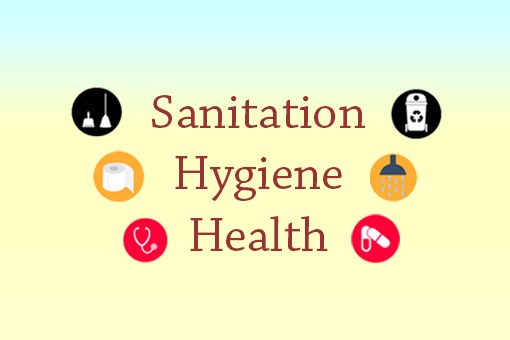"Cleanliness is next to Godliness"
– Mahatma Gandhi
Sanitation and hygiene are two important components related to health. At an individual level and also at a collective level, both become crucial in disease prevention, reducing mortality rate, improving quality of life, better health demographics and building a robust society where members are capable of fully realizing the opportunities of life.
Good sanitation practices such as proper waste disposal, personal hygiene habits, avoiding open defecation & urination, construction of public toilets, sanitation at home & work places are some of the ways for improving sanitation and building a clean and healthy society. In this context, proper education, alternatives to existing conditions, awareness programmes and adequate motivation to opt for healthier practices is significant.
MyGov Arunachal Pradesh invites you to share suggestions on how to increase community awareness and participation, and improve the quality of sanitation in both urban and rural areas in Arunachal Pradesh.

Adhiraj Ranjan 5 years 4 weeks ago
The world did not achieve the United Nations’ Millennium Development Goal (MDG) sanitation target (i.e., to halve the proportion of people without sustainable access to basic sanitation by 2015). Now, the United Nations’ Sustainable Development goal (SDG) is for everyone to have “adequate and equitable” sanitation by 2030 3.
Adhiraj Ranjan 5 years 4 weeks ago
Poor sanitation impairs the health leading to high rates of malnutrition and productivity losses. India’s sanitation deficit leads to losses worth roughly 6% of its gross domestic product (GDP) according to World Bank estimates by raising the disease burden in the country. Children are affected more than adults as the rampant spread of diseases inhibits children’s ability to absorb nutrients thereby stunting their growth.
Adhiraj Ranjan 5 years 4 weeks ago
This unhygienic environment is due to India’s historic neglect of public health services. The absence of an effective public health network in a densely populated country has resulted in an extraordinarily high disease burden.
Adhiraj Ranjan 5 years 4 weeks ago
As health economist Dean Spears argued “a large part of India’s malnutrition burden is owing to the unhygienic environment in which children grow up. Poor sanitation and high population density act as a double whammy on Indian children half of whom grow up stunted”. It is not a coincidence that states with the poorest levels of sanitation and highest levels of population density such as Bihar, Jharkhand and Madhya Pradesh also have the highest levels of child malnutrition in the country.
Adhiraj Ranjan 5 years 4 weeks ago
There need to be awareness campaigns for mothers and caregivers. Hand washing with soap at critical times is important for protecting the health of the whole family. By being a role model, mothers and caregivers can also help instill in their children healthy hygiene practices, which will serve them for life.
Adhiraj Ranjan 5 years 4 weeks ago
Poor wash causes diarrhoea, which is the second biggest cause of death in children under five years. According to the Public Health Association, only 53 per cent of the population wash hands with soap after defecation, 38 per cent wash hands with soap before eating and only 30 per cent wash hands with soap before preparing food. Only 11 per cent of the Indian rural families dispose child stools safely. 80 per cent children’s stools are left in the open or thrown into the garbage.
Adhiraj Ranjan 5 years 4 weeks ago
The importance of public health programmes on hygiene and prevention tools
There are many organisations and public- private collaborations working to improve access to toilets, improving drainage facilities and creating awareness through education campaigns on the importance of preventive tools such as hand washing. Hand washing with soap is among the most effective and inexpensive ways to prevent diarrhoeal diseases and pneumonia.
Adhiraj Ranjan 5 years 4 weeks ago
Awareness is the only thing which should be given more focus & importance to make the society & people hygenic by nature & culture. Hygenic awareness must be made from grassroot level & heath system of the state muat be made moare robust with reach even to remotest of the place. Proper heath supervision of health services at all levels, basically at grassroot levels must be done to ensure the best quality.Reward method must be undertaken to imbibe the culture of healthy living among the people
Adhiraj Ranjan 5 years 4 weeks ago
heath system of the state muat be made moare robust with reach even to remotest of the place. Proper heath supervision of health services at all levels, basically at grassroot levels must be done to ensure the best quality. Reward method must be undertaken to imbibe the culture of healthy living among the people.
Adhiraj Ranjan 5 years 4 weeks ago
According to the UNICEF, hand washing with soap, particularly after contact with excreta, can reduce diarrhoeal diseases by over 40 per cent and respiratory infections by 30 per cent. Hand washing by birth attendants before delivery has been shown to reduce mortality rates by 19 per cent while a 4 per cent reduction in risk of death was found if mothers washed their hands prior to handling their newborns.